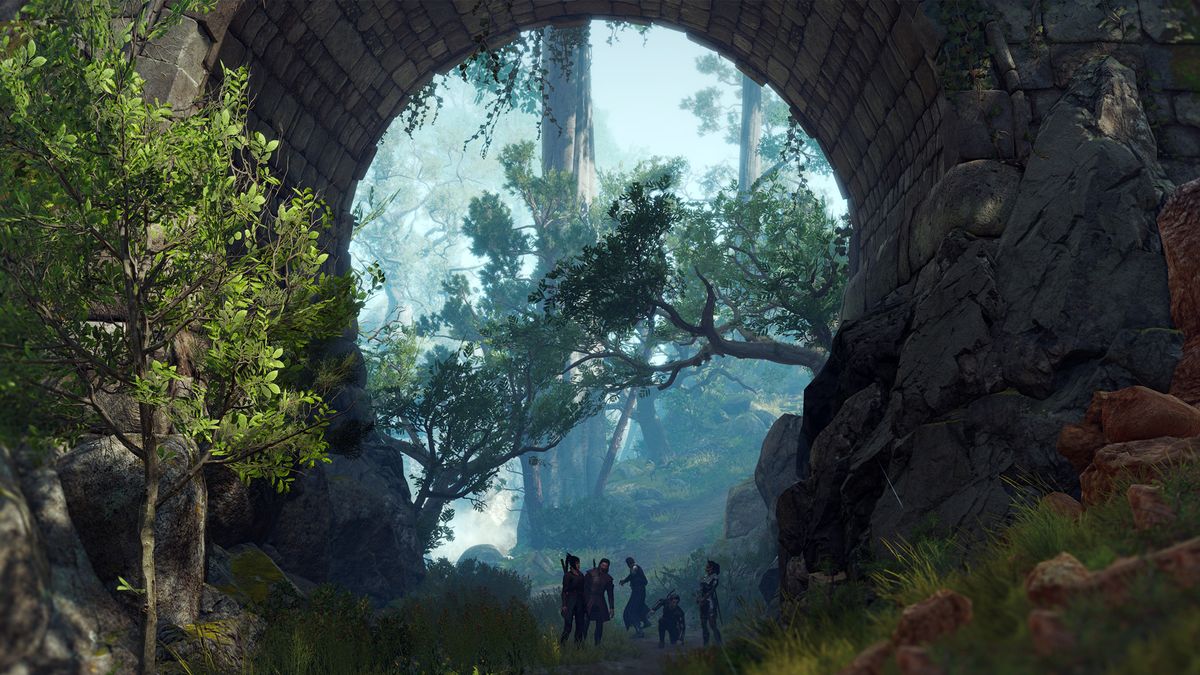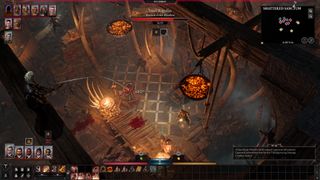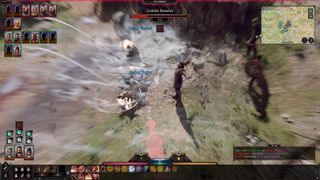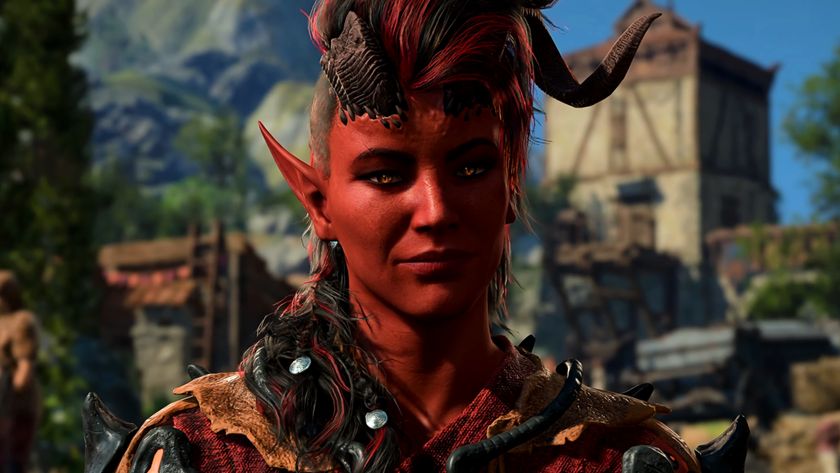Baldur's Gate 3 pilfered its best new idea from '90s adventure games
Larian embraces the power of the verb as it works to give you the ultimate D&D experience in Baldur's Gate 3

Swen Vincke has thrown his shoes. They weren't his first choice of projectile: there were spells, at first, and arrows. But now two party members lie bleeding out on the cobbles of an old fort, and bandits are in pursuit. The Larian CEO's options have shrunk to whatever is left in his backpack.
The brown leather boots bounce off the bonce of the brigand. They cause negligible damage, and slow him down not a jot. But the act felt good; the perfect expression of an overwhelming desperation. Have we not all, at some point, thrown our shoes in the face of life's brigands?
Dungeons & Dragons, the system which runs beneath Baldur's Gate 3 like the Underdark, is all about expression. The tabletop game allows adults who might not otherwise consider themselves creative to tell stories collaboratively. Its fiction encourages players to construct second selves, to do and say things they might feel unable to in reality. Roleplaying is a shared escape; an excuse to play.
In computer RPGs that seek to adapt D&D, however, we've learned to accept a watered-down version of that freedom. Without a Dungeon Master to react to player ideas on the fly, these digital realms necessarily become more static. Their stories might branch and their rules might be faithful, but they only really capture combat and conversation.
Baldur's Gate 3 resembles many of those games – a little prettier, maybe, and denser in detail. But look closer and you'll see a simple set of buttons on its interface designed to break open the mould, opening up the expressive possibilities of RPGs forever.
The power of verbs

They're just words, these buttons – doing words, like 'throw', 'jump', 'dip', 'help' and 'shove', pulled straight from D&D. Their power comes from the fact that they can be applied to anything, in or out of combat. You might jump across a ravine to access a hidden area, then throw the goods you find back over the chasm to your friends. Or you might help an ally back to their feet, then jump onto higher ground to take the advantage in a fight. These are verbs waiting to be placed into long sentences, as if you were writing your own adventure.
Point-and-click adventure fans will know this is not strictly new. Back in the '90s, genre classics like Monkey Island cluttered the screen with commands to 'open', 'close', 'push' and 'pull'. Over time, these buttons were merged to the point where a game like Broken Age has a single, contextual click. That saves a lot of tedious trial and error – and frees writers from finding any more variations on the phrase "I can't open that!" – but those verbs served a purpose, which was to prompt ideas. In Baldur's Gate 3, the D&D action bar does precisely the same thing, reminding you of options that might otherwise go unexplored.
Sign up to the 12DOVE Newsletter
Weekly digests, tales from the communities you love, and more
"Sometimes [on previous games] we thought we didn't want to make the UI too busy or complex because it might scare people off," senior producer David Walgrave tells me. "But showing key actions that you can do is going to change the way you think about the game. What you have is a big playground, a toolbox."
Those actions only work, of course, because the game is built on top of a deeply simulated world – one where the weight and trajectory of objects is calculated, and in which the temperature of characters increases when they pass by a fireplace.
"It was already available in our older games," Walgrave says, "but sometimes people didn't even know. There are people who have played and finished Divine Divinity without realising you could pick everything up and combine items."

"Showing key actions that you can do is going to change the way you think about the game"
David Walgrave, producer
Larian's focus on granular detail might look like a lot of work, but it was born from cost efficiency. "When we started putting systemics in our game, it was because from a programming point of view, it's very cheap," Walgrave says. "You can program a couple of algorithms and they simulate the world, and you don't have to look at it anymore."
Since then, those tricks have become a guiding philosophy. "We kept on making it more advanced," Walgrave says. "It makes the world feel consistent and real."
By the time Divinity: Original Sin 2 came out, Dungeons & Dragons custodians Wizards of the Coast had recognised the potential in all this simulation. "They liked the freedom and the idea that you could do anything that you would normally talk to your Dungeon Master about," Walgrave says. "We want it to feel like a tabletop adventure, but in a very highly simulated PC game environment. It's always been our goal to make players experience the tabletop on a computer."
It's a promise many developers have made over decades of D&D games. Then again, I never saw any of those developers throw their shoes.

Read our huge Baldur's Gate 3 first look preview, as we explore how Larian might just manage to satisfy fans of Divinity, modern D&D, and Baldur's Gate all at once with its stunning new game. And if you want to try out the game that inspired it all, here's how to play D&D online.
Jeremy is a freelance editor and writer with a decade’s experience across publications like GamesRadar, Rock Paper Shotgun, PC Gamer and Edge. He specialises in features and interviews, and gets a special kick out of meeting the word count exactly. He missed the golden age of magazines, so is making up for lost time while maintaining a healthy modern guilt over the paper waste. Jeremy was once told off by the director of Dishonored 2 for not having played Dishonored 2, an error he has since corrected.

"I believe in experiencing life and art through human expression, not software": Baldur's Gate 3 Astarion actor calls for proper AI regulation

Baldur's Gate 3 Karlach actor says CEOs "just want to save money" with AI: "It'll destroy their reputation, their company, everything"











